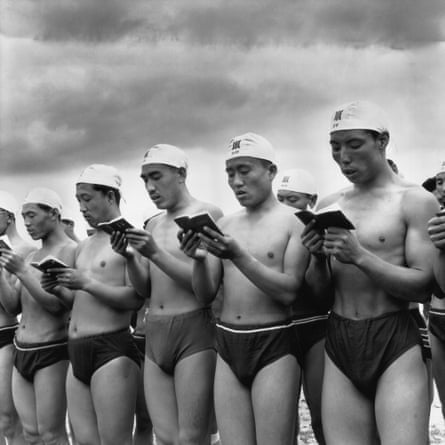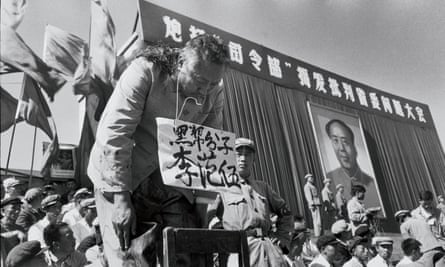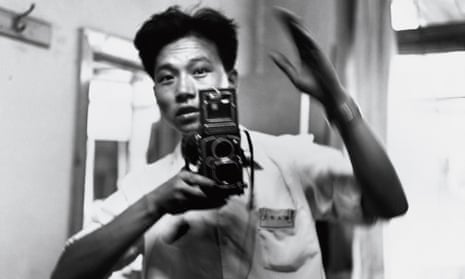The Chinese photographer Li Zhensheng, known for his unflinching portrayal of China’s Cultural Revolution, has died, according to his former publisher.
The Chinese University of Hong Kong Press, which in 2018 published the first Chinese-language edition of Li’s book Red-Color News Soldier – a compilation of photos he had hidden from the period – said Li, 79, had died after spending several days in hospital following a brain haemorrhage.
An article posted on the university’s WeChat account on Monday said Li had asked his family to deliver a message to friends when sharing the news: “I have spent my life striving to bear witness and document history, and now I will rest in history.”
Li’s family has not released a public statement. Chinese media have cited friends of Li who said he had died.

Li, who described himself as an “evangelist” of the Cultural Revolution, spent the last few decades calling attention to one of the most traumatic and little-studied periods in his country’s history, a social and political upheaval launched by Mao Zedong that paralysed the country between 1966 and 1976 as tens of millions of people were persecuted for “revisionism”. Up to 1.5 million people died.
Li, wearing an armband bearing the words “red-color news soldier”, was a staff photographer at the state-run Heilongjiang Daily in north-eastern China. He had rare access and took more than 100,000 photos of the decade of tumult, but was under orders not to publish “negative” photos.
Li Zhensheng, the Lucie-Award winning photojournalist who took over 100,000 photos during cultural revolution, reportedly passed away in New York. It’s impossible to revisit CR history without the massive archive he left behind while working as a reporter at Heilongjiang Daily pic.twitter.com/G5oJQiBeQu
— Tony Lin (@tony_zy) June 23, 2020
Following Mao’s death in 1976, when photographers were ordered to hand in all their photos, Li hid about 20,000 negatives under his floorboards at his home in Harbin. In 1988, during a rare window of openness, Li publicly exhibited 20 photos from his cache of images at a national photo contest.
In 2003, he worked with the photo agency Contact Press Images to publish Red-Color News Soldier in the US, UK, France, Japan and other countries. His photos have been exhibited in more than 60 countries, but efforts to publish them at home have been blocked.
Li’s photos, perhaps the most comprehensive visual documentation of the Cultural Revolution, have become a record of the brutality and ideological fanaticism of those years. In one, a provincial governor bows on stage with half of his hair shaven off, clippings stuffed in his shirt, which was punishment for styling his hair like chairman Mao.

In another, the bodies of eight “counter-revolutionaries” lay in a field after an execution. A photo taken in August 1966 shows a group of monks holding a banner with the words: “To hell with the Buddhist scriptures. It’s all bullshit.”
He later moved to the US but travelled to China for lectures, and in interviews frequently described himself as a patriot. He said in 2003: “My purpose is not to show the dark side of people in power. My purpose is to show people what happened in the past so that nothing like that will happen again. It is not an attempt to lay bare Chinese authority.”
